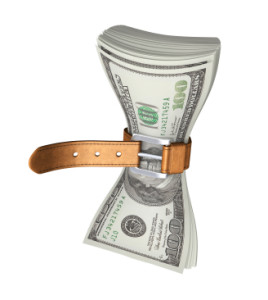 We’re richer than we were before the recession, according to a new report by the Federal Reserve. The net worth of U.S. households and nonprofit organizations is now a record $80.7 trillion, 14% higher than last year. The previous peak in 2007 was $76.59 trillion in today’s dollars.
We’re richer than we were before the recession, according to a new report by the Federal Reserve. The net worth of U.S. households and nonprofit organizations is now a record $80.7 trillion, 14% higher than last year. The previous peak in 2007 was $76.59 trillion in today’s dollars.
If you don’t feel wealthier, though, you’re not alone. Most of the gains went to the country’s richest households, and older people saw bigger wealth increases than younger people. That doesn’t bode well for consumer spending, economists said, since younger and less wealthy households are more likely to spend their gains. An article in today’s Wall Street Journal includes this quote:
“Wealth inequality…has increased over time,” said William Emmons, an economist at the Federal Reserve Bank of St. Louis. “So, there seems to be a disconnect: There are big wealth gains, but not much follow-through on consumer spending.”
Another study by the Federal Reserve Bank of St. Louis found that the average family headed by someone under 40 has recovered only about a third of the net worth lost during the financial crisis and recession, while the average wealth of middle-aged and older families is about where it was prior to the crisis.
